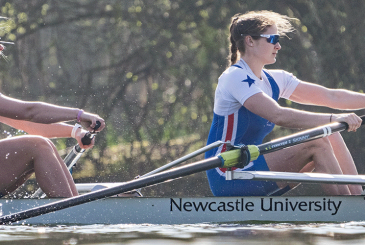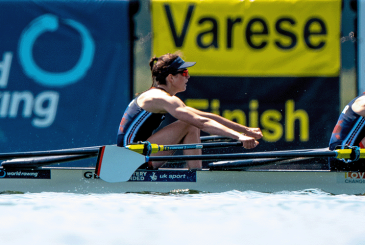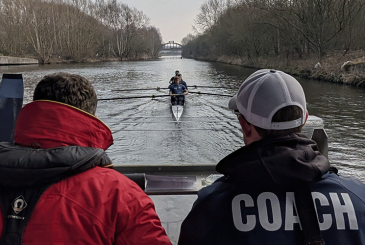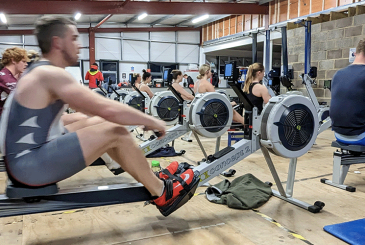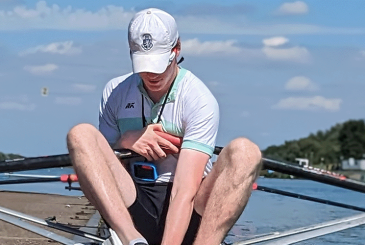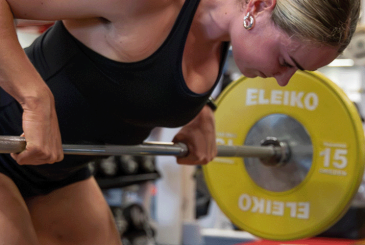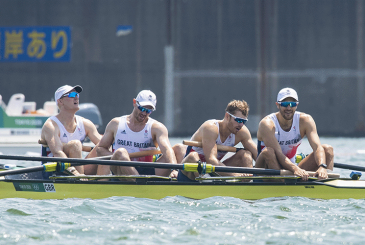Alan Oldham talks to Alex Wolf about infinite learning and creating a culture of reflection in your club or squad
Alex Wolf spent years helping top rowers get stronger as long-time lead on strength and conditioning for British Rowing. Following the successful London 2012 Olympics, he worked with coaches across multiple sports as head of strength and conditioning, then head of learning for the English Institute of Sport (now the UK Sports Institute).
Most recently, Wolf has published a book, Strength and Conditioning for Rowing, and gone it alone as a consultant, founding Liberating Brilliance, aiming to apply the lessons of effective leadership more broadly.
Alan Oldham spoke with Wolf about two concepts that have become central to his philosophy of leadership: infinite learning and reflective practice.
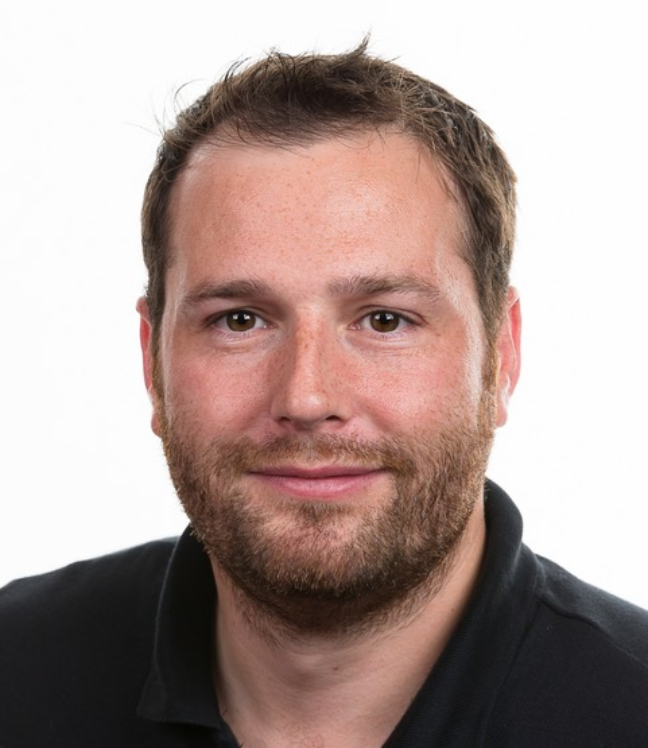
Revelation to revolution
Defined simply, infinite learning is the open-minded belief that learning is the primary goal of an experience. Reflective practice is essentially taking stock of an experience to understand its causes and the implications of future action.
Wolf’s interest in these important aspects of personal and professional growth was awakened through his work with elite coaches.
“Most of the coaches I worked with were not struggling with technical competency,” he recalled. “The issues they were in relationships, emotional intelligence stuff. Why do some people appear brilliant at it and some not?
“Liberating Brilliance is the idea that we are all brilliant, but also asks the question ‘how do we unleash that and become the must fulfilled as well?’”
Cultivating an infinite mindset
“Learning is never done,” said Wolf. “Especially with something like the pandemic, we need to be flexible to navigate the ever-changing world. Learning is a journey; we don’t know where it will take us.”
“In coaching and business, organisations often dictate what we learn. It can be quite hard to cultivate an infinite mindset.”
According to Wolf, a major systemic benefit of an infinite mindset is developing more effective leaders, but systems can be slow to change. Whether a coach is aiming to improving their own practice or turn around a toxic workplace, starting with what you can control is the place to start.
“From an individual point of view,” he said, “there are two things that someone can do: one is engaging in reflective practice, the other is being able to take feedback and change.”
Take time to reflect

“Reflection is trying to make sense of what is going on by creating a feedback loop,” explained Wolf. “We gather a new experience, a new bit of knowledge and then make a decision on how to apply it.
“When we reflect on what we’ve learned, we have a greater capability to apply it in a different setting.”
“Reflecting our ideas through a different lens gives perspective on things in ways we may not have seen before”
Time and space are the most important things for any coach to give themselves when developing their own reflective practice. Patience is key as is a willingness to reflect on the good as well as the bad.
“Often we reflect only where there is dissatisfaction,” said Wolf. “Even with good experiences there are things you want to do again and things you want to change. Whatever the situation, if you feel there is a need for change, you need to figure out what that change will be and how it will make a difference. Figure out the current situation and where you want to go, then fill the gap between them.”
“It sounds simple, but we all have biases,” explains Wolf, who stressed the importance of seeking the opinion of others to inform our reflective practice. “Reflecting our ideas through a different lens gives perspective on things in ways we may not have seen before.”
“At a club, it could be something that a coach is trying to work on and reaches out for support and ideas from others of how they can work on it,” he said. “The most important thing is creating a sense of safety, so people don’t feel that they are going to be judged for asking for support.”
Creating a culture of reflection
“It starts with understanding what people’s experiences are,” says Wolf of the important first step in creating a culture of reflective practice within an organisation. Everyone will come with more or less an understanding of how to reflect and learn.
“For people with less experience, you can create a lot of structure for them like methods and forms to help with reflections,” suggested Wolf. “As they become more skilled, they become more autonomous.”
“Is there anything I can change to make a difference next time?”
Becoming skilled at reflection, however, requires some guidance, he said.
“Start with structure, make sure there is a purpose to what they are making sense of and allow them to work their way through it.”
Wolf suggested creating a chronology as the simplest way to structure reflection with four simple steps:
- Write down a chronology of events
- Write what you were thinking, feeling, experiencing at each point
- Consider what impacts others and the environment were having on you
- Consider what impacts you were having on others and the environment
“Doing this can at least help someone make sense of what happened and why they responded in certain ways,” explained Wolf.
“Once you’ve done that, you should ask yourself, what next? Is there anything I can change to make a difference next time?
“There might not be a next step, but you still have to ask the question. Acquiring insight without doing anything about it isn’t meaningful.”
Not-so-soft skills
“I don’t like the terms ‘soft skills’”, said Wolf when talking about reflection and infinite learning’s integral role in coaching. “It puts them on a lesser footing than something like technical knowledge.”
“Athletes and coaches are people,” he continued. “They are the ones creating performances, the ones supporting performances. Understanding people’s hopes, dreams and fears allows us to be far more effective at collaboration, creativity, problem-solving.
“You’ve heard the phrase ‘it is good to be in a room of like-minded people’, but building strong relationships requires a lot of different ideas; the creative part is working together.”
“To be collaborative,” he concluded, “we need to understand ourselves and the people we work with. That is why we need to keep reflecting and learning.”
Read Alex’s blog here and follow him on Twitter here. Wolf also highly recommends the resources on UK Coaching’s website here.



